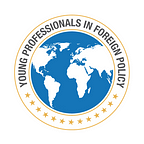The Entire World is Watching: The U.S. as a Study in Democratic Norms
By Colin Wolfgang
The United States has long been a bastion of democracy, with smooth transitions of power and an adequately representative voting system. For centuries we have cast our ballots, believing that we are the ones who decide our mayors, our congresspeople, our senators, and our commander in chief.
This latest election has put that democratic value to the test in a way that could harm other democratic states.
Countries throughout the world have long tested the “fragility of democracy.” Venezuela’s President, Nicolás Maduro, took the helm following the death of former President Hugo Chavez. However, recently, the politician (and recognized president by many countries) Juan Guaidó has contested Maduro’s rule.
Belarus has seen uprisings after a seemingly democratic election was essentially deemed invalid by President Alexander Lukashenko. He remains in power now after what many saw as a rigged election result.
“Rigged” is the operative term, and it is something the United States now faces itself. The country currently has a president who refuses to concede defeat and uses every mechanism within his power to sway judges, electors, and local elected officials to stay in power.
This was certainly no ordinary election by any means. The ongoing pandemic and a hostile, prolonged campaign season left people tired. Moreover, in many cases, Americans chose to cast their ballot by mail, leaving it up to respective states to deal with a deluge of mail-in ballots, which they counted by hand. Many states have not yet even certified their official count.
However, despite what the sitting president says, democracy prevailed. Before firing his head of election cybersecurity, Christopher Krebs, the director refuted the president’s claims that there was voter fraud and that the election was moot. State representatives, including the republican secretary of state in Georgia, have come out publicly, saying that while they had hoped for another four years of our current president, their states had counted, recounted, and ensured that the results were legitimate.
The fact that we will have a smooth transition come January 20 is reassuring. What is not reassuring is the playbook being created for states worldwide, with democratic institutions and leaders seeking to undermine those institutions.
So-called “democratic” leaders in countries across all over the world are watching as a threat to democratic norms in the United States plays out in real-time. Votes can now be contested. Voter fraud is a plague that invalidates every single election. If all else fails, lawsuits can provide a legal objection to how many people voted for which candidate.
There is no way to underscore the toll this can take. As in Belarus, Hungary, Russia, China, Venezuela, and elsewhere, we have seen democratic values diminished by those who lead. Furthermore, those who lead have most often looked at the United States as a country not to be emulated, a country where every vote matters and leaders are chosen by the people.
That paradigm is rapidly diminishing. Every day that our current president refuses to accept the election results and concede to his successor is another day that other leaders are inspired to do the same. As a role model for countries aspiring to peaceful democratic norms, whether it be the nascent South Sudan or established India, the United States must prove that regardless of the outcome, every vote will be counted, and the transition of power will be peaceful.
The entire world is watching.
Colin Wolfgang is a political and communications consultant and the Managing Director of YPFP New York.
